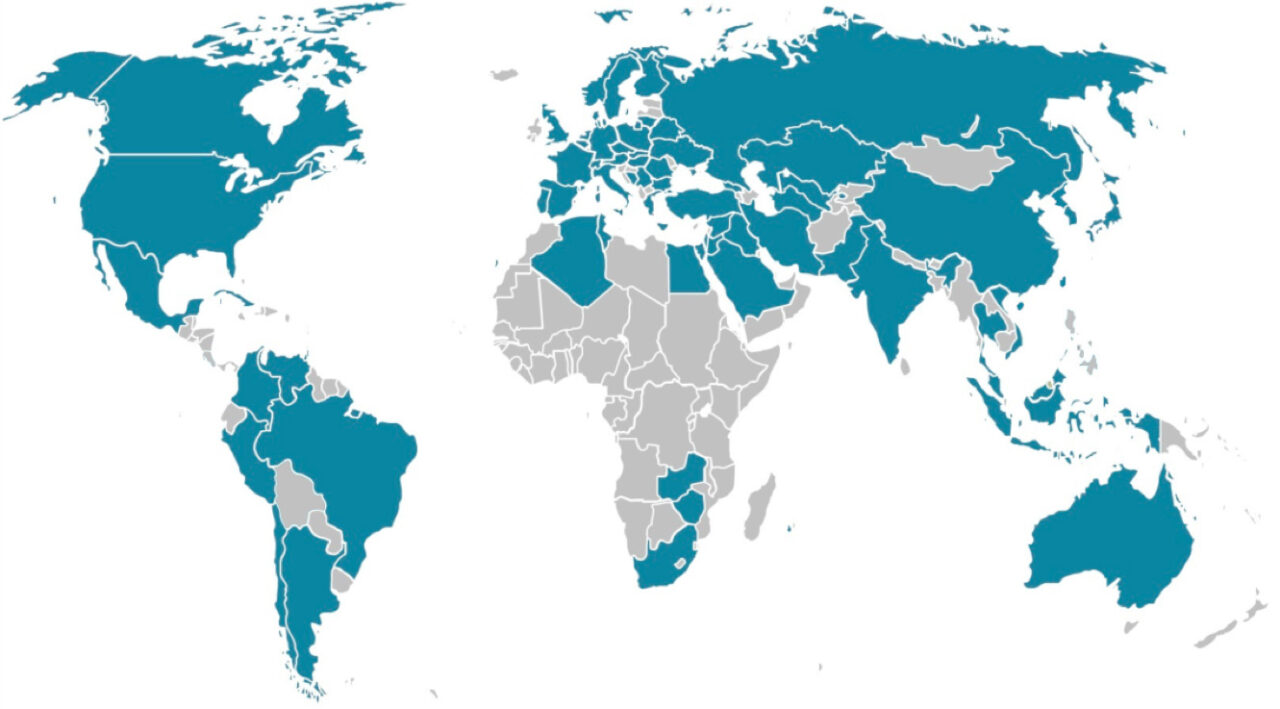Introducing Nitric Acid Climate Action Group
Objective and vision
The German government has launched the Nitric Acid Climate Action Group (NACAG) during the 21st Conference of the Parties in Paris (COP 21) in 2015 to drive a global shift towards climate-friendly nitric acid production. The Deutsche Gesellschaft für Internationale Zusammenarbeit GmbH (GIZ) is supporting the German Government in implementing the Nitric Acid Climate Action Group.
NACAG aims to promote the installation of effective nitrous oxide (N2O) abatement technology in all nitric acid plants worldwide. To this end, NACAG offers technical, political and financial assistance to eligible partner countries.
The approach of the NACAG initiative aligns with the principles of the Paris Agreement: Germany provides technical and financial support, while partner countries are urged to take responsibility for permanent emission reductions in the future.
NACAG’s offer
The initiative offers governments and plant operators guidance and information on technological and regulatory aspects of N2O abatement. Furthermore, NACAG provides financial support for the procurement and installation of emission abatement technologies to eligible countries entitled for Official Development Assistance (ODA). This financial support is subject to the condition that the partner countries take full responsibility for the reduction activities – for example within the framework of their Nationally Determined Contributions (NDCs) in accordance with the Paris Agreement. The commitment of partner countries to reduce emissions ensures the sustainability of initiated activities and the long-term transformation of the sector.
Potential of the initiative
According to NACAG’s estimates, the global nitric acid sector has an average annual emission reduction potential of above 100 million tCO2e.
Governments, plant operators, international donors and other stakeholders are welcome to join this global action group and contribute to the global transformation of the nitric acid sector.
Argentina, Colombia, Cuba, Pakistan, Georgia, Indonesia, Jordan, Mexico, Thailand, the Federation of Bosnia and Herzegovina, Tunisia, Uzbekistan, Viet Nam, Zambia and Zimbabwe have signed the Declaration of the NACAG. They thereby express their support for the goals of the initiative. Both governments and private companies are welcome to join the Action Group by signing the non-binding NACAG declaration.
Argentina, Colombia, Georgia, Jordan, Mexico, Peru, Pakistan, Thailand, Tunisia, Uzbekistan, and Zimbabwe have also signed the Statement of Undertaking, committing to permanently reduce N2O emissions from nitric acid production. Following this step, plant operators in these countries become eligible for financial support through NACAG. Additional information on the ongoing tenders for abatement and monitoring equipment in these countries may be found here.
Global overview of nitric acid producing countries.

Number of nitric acid plants worldwide: app. 500
FAQ – The Nitric Acid Climate Action Group (nitricacidaction.org)
See also:
FAQ (English)
FAQ (Spanish)
FAQ (Russian)
NACAG Factsheet


